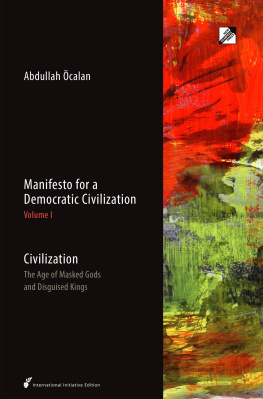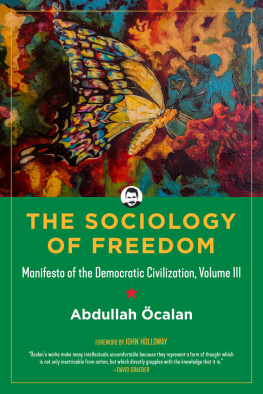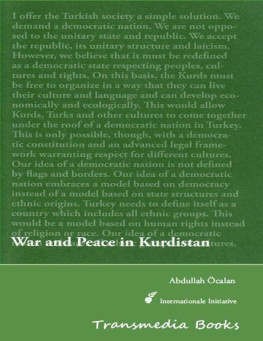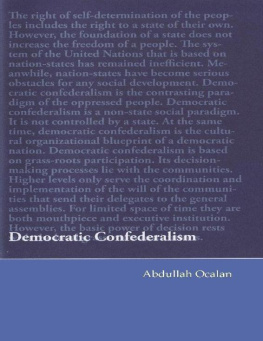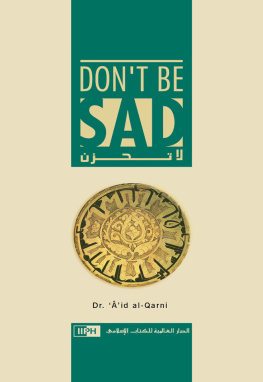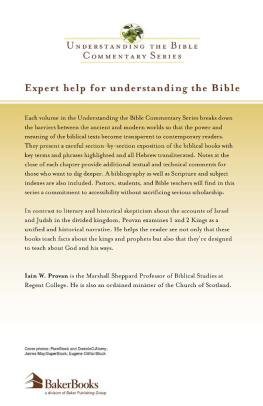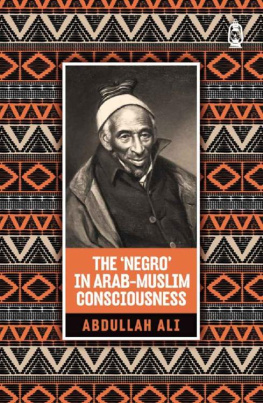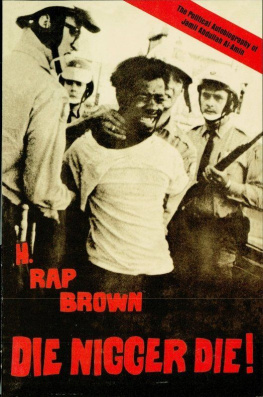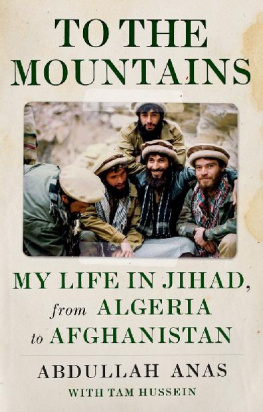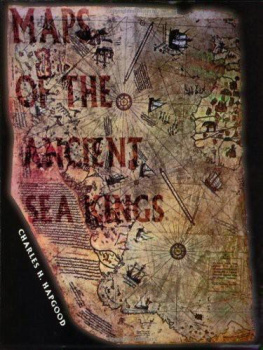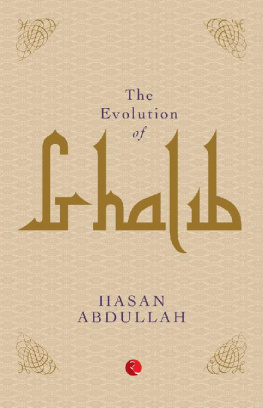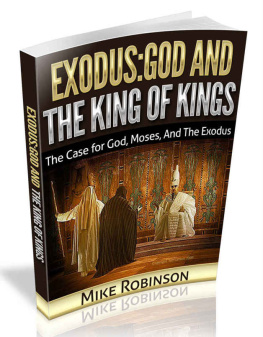Abdullah Öcalan - Civilization: The Age of Masked Gods and Disguised Kings
Here you can read online Abdullah Öcalan - Civilization: The Age of Masked Gods and Disguised Kings full text of the book (entire story) in english for free. Download pdf and epub, get meaning, cover and reviews about this ebook. year: 2018, publisher: MCWriting.com, genre: Religion. Description of the work, (preface) as well as reviews are available. Best literature library LitArk.com created for fans of good reading and offers a wide selection of genres:
Romance novel
Science fiction
Adventure
Detective
Science
History
Home and family
Prose
Art
Politics
Computer
Non-fiction
Religion
Business
Children
Humor
Choose a favorite category and find really read worthwhile books. Enjoy immersion in the world of imagination, feel the emotions of the characters or learn something new for yourself, make an fascinating discovery.
- Book:Civilization: The Age of Masked Gods and Disguised Kings
- Author:
- Publisher:MCWriting.com
- Genre:
- Year:2018
- Rating:4 / 5
- Favourites:Add to favourites
- Your mark:
- 80
- 1
- 2
- 3
- 4
- 5
Civilization: The Age of Masked Gods and Disguised Kings: summary, description and annotation
We offer to read an annotation, description, summary or preface (depends on what the author of the book "Civilization: The Age of Masked Gods and Disguised Kings" wrote himself). If you haven't found the necessary information about the book — write in the comments, we will try to find it.
Civilization: The Age of Masked Gods and Disguised Kings — read online for free the complete book (whole text) full work
Below is the text of the book, divided by pages. System saving the place of the last page read, allows you to conveniently read the book "Civilization: The Age of Masked Gods and Disguised Kings" online for free, without having to search again every time where you left off. Put a bookmark, and you can go to the page where you finished reading at any time.
Font size:
Interval:
Bookmark:

Civilization: The Age of Masked Gods and Disguised Kings
Manifesto for a Democratic Civilization: Volume I
2015 International Initiative Edition
Second Printing, 2015
ISBN 978-82-93064-42-8
ISBN 978-82-93064-43-5 (ebook)
ISBN 978-82-93064-37-4 (hardcover)
Original title: Uygarlk: Maskeli Tanrlar ve rtk Krallar a,
Demokratik Uygarlk Manifestosu, Birinci Kitap
Translation: Havin Guneser
Edited by: Riekie Harm and Arjen Harm
Published by New Compass Press
Grenmarsvegen 12
N3912 Porsgrunn
Norway
new-compass.net
And:
International Initiative Edition
Freedom for Abdullah calanPeace in Kurdistan
P.O.Box 100 511
D-50445 Cologne
Germany
freedom-for-ocalan.com
info@freedom-for-ocalan.com
Design and layout by Eirik Eiglad
Cover Artwork: Aye Kazc, Unnamed, detail.
Contents
Editorial Note
By International Initiative
We are happy to publish the first of five volumes of what the author describes as his most important work. The publication of this book occurs in a period when hopes for a peaceful resolution to the Kurdish Question have been rekindled.
During the 10 years in which we have published calans prison writings in English, his publicly acknowledged position has changed considerably. After his death sentence was handed down in 1999, few non-Kurds believed that he would ever again play a significant role in Kurdish politics. We firmly believed, however, as we stated in our founding document, that calan is still regarded as the undisputed leader by a majority of the Kurdish people, and that it seems reasonable to assume that the solution of the Kurdish question in Turkey will be closely linked to his fate in the future. Many Kurds see him as a safeguard for peace and democratization.
After his imprisonment, calan intensified his efforts to find a lasting solution to the Kurdish issue, even in those years when the conflict did not make headlines. His perseverance and willingness to search for creative solutions has brought him the deep respect even of his opponents, the officials of the Turkish state that hold him captive. During those years, he emerged as the uncontested leader of negotiations for the Kurdish side in what is called the solution process. Now he is widely regarded as one of the most important driving forces for peace and democratization in Turkey and Kurdistan.
During these last months, there has been tangible movement in the talks between calan, the PKK, and the Turkish state. The Turkish government is now closer than ever to entering into actual negotiations with calan and the PKK. While the whole process is still tenuous and fragile, hope is again blossoming this spring.
Paradoxically, calan, like the other prisoners on Imrali Island, is still held in solitary confinement. Despite ongoing talks with different government bodies, he has not been allowed to see his lawyers since June 2011. He is still not able to write or receive letters, or to make any phone-calls. The paradox of a negotiation leader in isolation is still not resolved.
The conditions of solitary confinement are harsh for a thinker like calan. At times, isolation meant that he did not even have pen or paper, and that he was not allowed to have any books in the cell. These limitations did not stop him from penning down his thoughts. calan authors his hand-written manuscripts in one go. Afterwards, he does not have the opportunity to revise them or to look at the typed manuscripts. Due to these conditions he is unable to cite his sources. Most of the footnotes to this text have therefore been added by the editors and translator. We have done so to the best of our knowledge, but may have missed some allusions and implicit references. Some comments in the text have also been moved to footnotes where deemed necessary. Most of the difficulties in translating and editing were due to the fact it was impossible to communicate with the author.
Despite these limitations, calans writings have broad appeal and a huge practical impact. His books reach a wide readership in Kurdistan and elsewhere, and they inspire countless people to struggle for freedom and a better society. Recentlyand very visiblythe revolutionary changes in Rojava and the resistance in Koban have been spurred by calans concepts and ideas.
We are confident that the years ahead will see further progress on the road to peace and freedom. In a worldwide signature campaign, activists recently collected 10,328,623 signatures for Freedom for Abdullah calan and the political prisoners in Turkey. This demand is absolutely necessary for the peace process. As Nelson Mandela famously stated while he was in prison: Only free men can negotiate. A prisoner cannot enter into contracts. We are certain that the demand for Abdullah calans freedom will ring ever louderuntil it is finally met, and he can join his friends and comrades in the quest to build a truly democratic civilization.
International Initiative
Freedom for Abdullah calanPeace in Kurdistan
Cologne, March 2015
Preface
By David Graeber
Marx believed it was imagination that made us human: unlike bees, architects first imagine the houses they would like to build, and only then set about actually constructing them. In a sense, the great question driving all revolutionary thought is simply this: if we can do this with our houses, why cant we do it with the social order as a whole? Because after all, how many of us, were we to simply imagine a society we would like to live in, would come up with anything remotely like the ones that currently exist? Yet almost every serious effort to proceed like the architect, to simply imagine what a just society should be like, and then set about creating it, seems to lead to frustration or disaster.
One might well argue that this is why we have social theory. The very idea of a social science is born from the ruins of revolutionary projects. We imagine the social equivalents of floating palaces and Tatlins Towers, we try to build them, and find ourselves watching in dismay as they crash and crumble all around us. Surely, there must be some social equivalents to the laws of physics and gravitation that we were unaware of. As the positivists argued in the wake of the French revolution, or Marx when he wrote Capital in wake of the failed revolutions of 1848, perhaps if we understood those laws, we can also understand how to avoid such pitfalls in the future. Yet every attempt to apply such a scientific approach to human societywhether by right or left, whether it takes the form of neoclassical economics or historical materialismhas proved if anything even more disastrous.
One problemat least, this is what a lot of revolutionaries around the world began to realize by the 1990sis that we were working with a decidedly limited notion of imagination. After all, even architects dont build their designs out of nothing, and when they do, most would prefer not to live in the sort of structures they create. And some of most of the most vital, most creative, most imaginative revolutionary movements of the dawn of the new millenniumthe Zapatistas of Chiapas are only the most obvious, perhapshave been those that, simultaneously, root themselves most strongly in a deep traditional past. There was a growing recognition, in revolutionary circles, that freedom, tradition, and the imagination have always beenand presumably, always will be, entangled in one another in ways that we do not completely understand. Our theoretical tools are inadequate.
Perhaps the only thing we can do at this point is to return to the past and start over.
In such circumstances, one might say, the more ambitious the thinker, the further back into the past one is likely to reach. If so, calans work, over the last fifteen years of his captivity, has been nothing if not ambitious. True, he carefully avoids taking on the role of the prophet. The latter would be easy enough, under the circumstances: to speak ex cathedra in epochal declarations like some latter-day Zarathustra. Clearly he does not wish to do this. At the same time, a radical by temperament, neither does he want to sit at anybody elses feet. He is never quite satisfied even with the thinkers he most admiresBookchin, Braudel, Foucault; rather, he wishes to speak, as a self-proclaimed amateur, about a history and social science that does not currently exist, but itself, perhaps, can only be imagined. What would a sociology of freedom actually be like? One can only guess. Surely, existing social theory has confined itself above all to those dimensions of social life in which we are not free, in which we can at least imagine that our actions are predetermined by forces beyond our control.
Font size:
Interval:
Bookmark:
Similar books «Civilization: The Age of Masked Gods and Disguised Kings»
Look at similar books to Civilization: The Age of Masked Gods and Disguised Kings. We have selected literature similar in name and meaning in the hope of providing readers with more options to find new, interesting, not yet read works.
Discussion, reviews of the book Civilization: The Age of Masked Gods and Disguised Kings and just readers' own opinions. Leave your comments, write what you think about the work, its meaning or the main characters. Specify what exactly you liked and what you didn't like, and why you think so.

